Published on
Updated on
In October, the Provost’s office announced the 2019 Curators’ Distinguished Professors and the Curators’ Distinguished Teaching Professor. The Provost asked each individual winner to share their distinct stories to connect their research and teaching to the larger mission of Mizzou. On this page, and in future Provost newsletters, we will share each faculty member’s thoughts as they share their lessons on mentoring, motivation, and research.
Why Does Your Research Matter to the citizens of Missouri?
(Alexander Koldobsky)
Applying pure mathematics to the real life is a long process that in many cases cannot be traced precisely. However, modern science and technology were built on the foundation of mathematical research. I hope that my work contributes to this process. What I can definitely see every day is that my teaching at Missouri is greatly influenced by my research.
(Arthur Suits)
Our work contributes to Missouri life in varied ways. At the most fundamental level, we advance knowledge, and I think many Missouri citizens place value on this as I do. Also, as a result of our effort here Mizzou students gain unique skills that make them valuable to employers in Missouri. In fact, I am a Missouri native and a Mizzou alum, so I am a case in point you might say. Finally, we support our team by bringing in federal research money from a number of agencies, and these funds contribute to the institution both directly and through enhancing Mizzou’s profile as a major research University. This is good for Missouri and I think most citizens will agree.
(J. Chris Pires)
Our lab does basic research on how plants are related to each other in the ‘Tree of Life,’ and how ‘extra’ genetic material, like duplicated genes and chromosomes, can lead to new traits. The citizens of Missouri care how we use this knowledge to improve crops for agriculture; however, our bigger impact is in training the next generation of scientists, teachers, and entrepreneurs.
(Keith Herman)
At the Missouri Prevention Science Institute we only do research that has an outreach, service, or engagement component. In other words, we don’t do research for research sake. We believe research, engagement, and training are fully integrated activities. More specifically, our research has brought millions of dollars of resources to Missouri schools that they otherwise would not have had. This includes state-of-the art training and supports for (a) K-12 teachers across the state to improve the classroom management skills and relations with students; (b) K-12 school administrators to improve their leadership skills in promoting safe and civil school climates; (c) school behavior teams to deliver high quality supports for youth showing early signs of emotional or behavior concerns; (d) promoting the emotional health of teachers; (e) fostering parent engagement in schools; and (f) promoting culturally responsive practices in schools.
Our research impacts youth and families. Research helped create the Family Access Center for Excellence (FACE) and the Boone County Schools Mental Health Coalition (Coalition) which together screen all youth in Boone County schools for mental health risk indicators three times per year, provide technical assistance to schools to support youth who are identified with needs, and provide no charge evaluation, referral, and case management for any family in the county who has concerns about their child’s mental health. Our research helps evaluate these programs and inform revisions and improvements to ensure their success and justify their continued operation. Our new National Center for Rural School Mental Health will bring the Coalition model to rural schools throughout the state.
Our research also helps school leaders and policy makers make informed decisions about what practices/programs are worthy of time and financial investment. For instance, we have conducted several large rigorous randomized trials to determine exactly how helpful particular school training programs and practices are in terms of impacting teacher and student outcomes.
Finally, our research impacts the economy and reputation of Missouri. The funding that supports our research creates scores of full- and part-time jobs, and the money for salaries and hourly pay gets reinvested right back into our local economies when employees pay rent, buy food and clothes, etc. The federal funding we receive brings prestige and recognition to Mizzou and also the state which increases the likelihood we will attract more funding and more stellar scientists and practitioners to our state.
(Robert E. Sharp)
My research focuses on the mechanisms that determine how plants, especially plant roots, continue to grow under drought conditions. Drought is the major environmental factor limiting crop productivity on a global basis. In Missouri, one part of another experiences severe drought in the majority of years. This causes major economic losses that impact the citizens of the state. Understanding how plants regulate their growth and development under water-limited conditions is vitally important for developing crops with improved drought tolerance.
(Wendy Slutske)
My research is focused on the underpinnings of addiction. Addiction is a monumental societal problem that touches the lives of all of us – not just the individuals struggling with an alcohol or substance use disorder, but also their parents, spouses, children, co-workers, and even those in the community who share the road with them. It is a complex and multifaceted problem. Any traction that we can get on this problem will be of benefit to all of us.
Some of my research has public health relevance. For example, in a recent paper, we showed that the genetic predisposition to develop problems with alcohol was more likely to be expressed in neighborhoods in which there were more bars or restaurants. This is important evidence supporting efforts to place community limits on the number of places where alcohol can be consumed.
(William T. Horner)
There are many answers to this. First of all, I think any work done in the name of increasing knowledge is a service to the citizens of Missouri, who pay my salary. I think that the research I’ve done on the impact of policy changes in Missouri, or on the evolution of the relationship between politics and the news media, or the impact of entertainment media on politics, all help people better understand the complicated political times in which we also live. But I also think that having an active research agenda is one of the best ways to remain effective in the classroom. The things I work on in my research help inform my teaching and make my classroom material always evolving and relevant.
Motivation & Daily Rituals
(Alexander Koldobsky)
Mathematicians usually cannot get completely free from thinking about their research problems and essentially do it around the clock, no matter if it works or not. However, in so-called free time I like to play chess and basketball. Also, while living in Texas, I became a lifetime fan of the San Antonio Spurs and try to watch their games as much as possible. If you see somebody walking on the MKT trail wearing a Spurs shirt, it could be me.
(Arthur Suits)
We have a one-year old baby, Francis, and he is all of the motivation and daily rituals, an inspiring and joyous smile machine! I also have a daughter Persephone who is a junior at Mizzou, and I am extremely grateful to have these years in close proximity where I can watch her rocket into the next realm of achievement.
(J. Chris Pires)
As scientists and teachers, we often fail as we try to be innovative and experiment with new ideas and approaches. I try to share the risk and reward of embracing change with my collaborators and students. So I motivate myself by getting those around me excited by what we are trying to achieve. In return, if I am having a bad day, the best thing to do is to walk into my lab and start talking to the students about what they are excited to be working on at the moment.
I walk or bike to campus most days of the week to begin and end my work day with movement. On Saturday, I try to spend most of the day outside in my garden to reduce my screen time. On Sunday, I enjoy a relaxing brunch and write in a journal to orient my thoughts before diving into my office in the afternoon for the ritual of organizing my work week.
(Keith Herman)
I intentionally surround myself with people who are passionate about what they do and who spend much of their time and energy literally trying to change the world for youth and families. People who are negative or principally driven by self-interests do not stick with our team. This helps to manage any storm when you know someone on our large team will bring their passion to bear to address whatever barriers or challenges we inevitably encounter.
(Robert E. Sharp)
Take a break—going for a walk on one of Columbia’s beautiful trails is always good “to clear the mind”. Having many excellent colleagues to talk through problems is a great asset. And after a long day, fruitful or otherwise, my wife and I enjoy going out to dinner, for example to listen to jazz at Murry’s.
I enjoy listening to music, especially acoustic “country” blues. And while not a daily ritual, my wife and I still try to attend a blues festival in Mississippi once or twice a year. And taking a complete break for travel, often focused on wildlife, is rejuvenating.
(Wendy Slutske)
My graduate students help me to stay motivated in my research when things don’t work out. It is important to their success for us to forge ahead when we hit a bump in the road. I also like to set an example for them of how to be persistent.
(William T. Horner)
Sometimes running into obstacles can be very frustrating. I am fortunate to have a partner in life who has also dedicated her career to the University of Missouri and we are each other’s best support when things get tough. We’ve faced, and overcome, a lot of obstacles together. We are both often told “No,” and we tell each other that “No” isn’t acceptable and we help each other to achieve and to serve the University of Missouri.
As for daily rituals, I find that I concentrate a lot better when I’m doing something physical, so I built myself a table I can work on while riding my exercycle. It has made me much more productive! I’m also teaching myself (with something less than the success I have been fortunate to have in other areas) to play the banjo.
Mentors and Influences
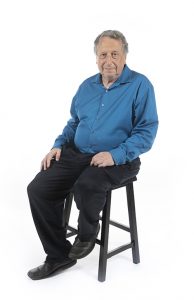
Growing up as a Jew in the Soviet Union, I had to overcome many obstacles to become a professional mathematician. However, I did not do it alone. Alexander Plotkin, who was my high school teacher and then my advisor at the Pedagogical Institute, spent endless hours helping me to develop my skills and to find my way in mathematics. Later in life, I met Evgeniy Gorin from Moscow University, who was formally my co-author, but in fact he taught me so much that I consider him my second teacher. His enthusiasm and dedication to mathematics were truly contagious. After immigrating to the United States, I met many people who helped me professionally and influenced my work, among them Donald Burkholder from the University of Illinois, Joram Lindenstrauss from the Hebrew University and Aleksandr Pelczynski from Polish Academy of Sciences. I was very lucky to work with many talented PhD students and postdocs at Missouri and learned a lot from them. Finally, all my achievements were possible thanks to constant patience and support from my family.
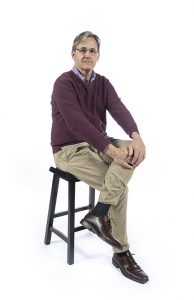
The people I must thank start with the graduate students and post-docs who put in long hours and struggle patiently with lasers that break and signals that fade inexplicably, but they persevere. I have a great team in place here and I am proud of what they do. I have had strong institutional support throughout my career, and this is true more than ever here at Mizzou, from my Department Chair on up. I am immensely grateful to my wife, Bernadette Broderick. Without her I would be wandering in the wilderness rather than acknowledging a Distinguished Professor award. She is also a scientist, and our styles are complementary so I benefit enormously from her advice.
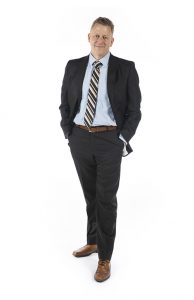
Aside from my amazing students and faculty colleagues, I have been helped by so many teachers and mentors who have inspired me. As a first-generation college student, I am always grateful to my parents who encouraged me to be true to my own interests rather than take safer career paths. And, of course, most important is Kate Anderson, my partner in all of life’s adventures.
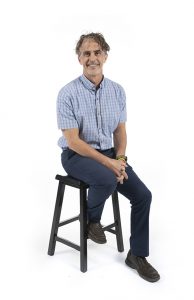
I have also been incredibly fortunate to have a long parade of generous and brilliant mentors and advisors at each stage of my career. Carolyn Webster-Stratton, Carolyn Tucker, George Sugai, John Lochman, Nick Ialongo, Ken Merrell, and Tom Dishion; each of them is recognized as a world leader on topics including public health, child clinical psychology, culturally responsive practices, parenting, and school-wide interventions. Anyone would be lucky to have even one of these people of this stature and generosity as a mentor. I’ve had them all. Additionally, I have been incredibly fortunate to have found peer collaborators who inspire me and who I love working with. These individuals include many people at Mizzou such as Aaron Thompson (Social Work), Kristin Hawley (Psychological Sciences), Melissa Stormont (Special Education), James Sebastian (Educational Leadership), Francis Huang (Educational Methodology), Wolfgang Wiedermann (Educational Methodology), Wes Bonifay (Educational Methodology), Erica Lembke (Special Education), Clarke Peters (Social Work), and Laine Young-Walker (Child Psychiatry).
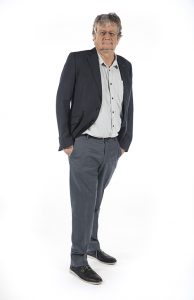
An inspiring undergraduate instructor, Prof. Terry Mansfield at Lancaster University, UK, instilled my interest in plant physiology and encouraged me to pursue a doctoral degree. My doctoral advisor, Prof. Bill Davies, also at Lancaster, introduced my career-long focus on plant water relations and root growth and development. Moving to the US, I had outstanding opportunities to pursue postdoctoral studies with several leading scientists in plant water relations and growth analysis, Profs. John Boyer (University of Illinois, Urbana), and Ted Hsiao and Wendy Silk (University of California, Davis), who each introduced me to approaches that have continued throughout my career. All of these mentors were highly influential through their emphasis on experimental rigor and persistence in research.
At MU, Prof. Doug Randall’s nurturing and dynamic leadership of the IPG provided an atmosphere of collegiality and community that promoted a sense of enthusiasm and pride in the campus’ excellence in plant biology research and education.
Naturally, my many excellent lab members over the years have played a key role in this story, as have my collaborators in the IPG and, in particular, Vicki Bryan, the IPG Coordinator, who has been an indispensable colleague since 2011 when I was appointed as IPG Director.
And lastly, of course, I could not have enjoyed a successful career without the endless support of my wife, Diane, and daughters Nicole and Laura.
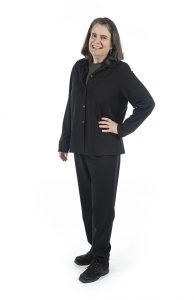
There is a long list of people who have played an important role in my career – I’ll just mention a few. Professor Ken Sher was instrumental in making MU an important hub of addictions research, which has made MU a stimulating environment in which to work. And I wouldn’t have gotten to this point without my graduate students and postdoctoral fellow. Collaborating with them and seeing their careers take shape probably motivates me more than anything. I am especially grateful to Professor Nick Martin of the Queensland Institute of Medical Research in Brisbane, Australia, who I have now been working with for nearly 25 years. He opened up many research opportunities to me and has always been my biggest champion. Professors Terrie Moffitt and Avshalom Caspi of Duke University have also provided me wonderful research opportunities. Finally, my husband and colleague, Professor Thomas Piasecki, is smart and funny, my biggest supporter, and a great collaborator.
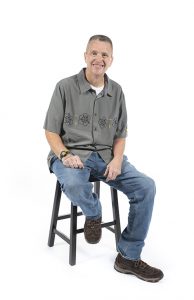
When I started, I was a young, inexperienced teacher and I learned a great deal all of my colleagues. I am especially indebted to the mentorship I have received throughout by time here from my department chairs and from the Vice Provost for Undergraduate Studies, Jim Spain. I have also learned a great deal from colleagues who are deeply dedicated to teaching, such as Larry Ries, Deborah Hulsbergen, and Nicole Monnier. But my greatest inspiration is the best educator I know, the chair of the Theatre Department here at Mizzou, my wife, Dr. Heather Carver.
Significance of Curators’ Award
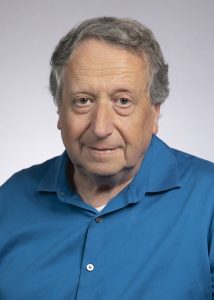
My area of research is geometric tomography, which is the study of geometric properties of solids based on data about their sections and projections. The Curators’ Professorship provides a huge positive impulse to continue to innovate in this field of mathematics. I am very grateful to my colleagues for choosing me for this honor.
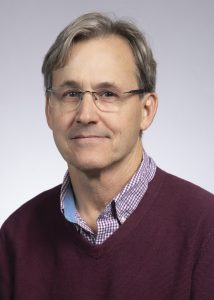
This award signifies that people outside of my immediate scientific community recognize something special about our work, and that is extremely gratifying.
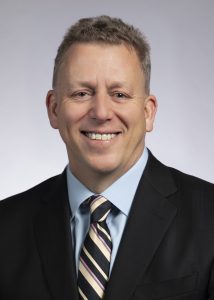
I am humbled by this appointment. I’m continually grateful to have had my career at the University of Missouri. Mizzou has provided me an outstanding, supportive, and stimulating environment to pursue my research. It’s also been a privilege to mentor some of the best undergraduate and graduate students around.
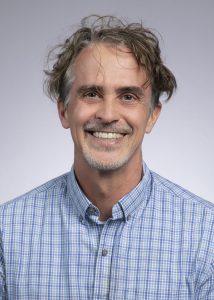
A Curators’ Professor award is one of the highest honors a faculty member at Mizzou can receive. I have endless people to acknowledge for putting me in a position to receive such an award; first and foremost is my wife and key collaborator, Wendy Reinke. Wendy and I have worked together for over 20 years, slightly longer than we’ve been married. We share a common vision for how teaching, scholarship, and engagement can change the world, particularly for improving the social, emotional, and behavioral health of all children. Our strengths complement each other, and we are each exponentially more productive and impactful because of this.
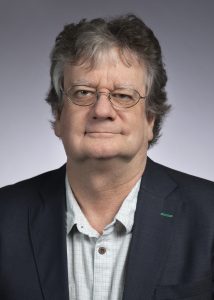
I am greatly honored to receive this recognition. I have been with MU for the whole of my faculty career, from 1986. The University, CAFNR and the Interdisciplinary Plant Group (IPG) in particular have provided an outstanding and supportive environment to progress in my career, and it has been rewarding to contribute to the growth, reputation and impact of MU’s plant biology program.
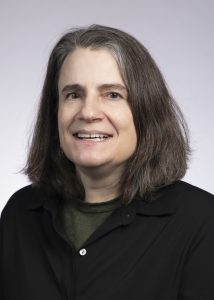
It is wonderful to be recognized for my achievements by my own university. The award will also help me to explore new research opportunities, which is very exciting.

This award is a great honor. I have taught at the University of Missouri for 19 years and it has been a great privilege to work with the University’s amazing students, staff, and faculty every day.
For more information:
https://coas.missouri.edu/news/home-five-2019-curators-distinguished-professors
https://biology.missouri.edu/news/chris-pires-named-curators-distinguished-professor